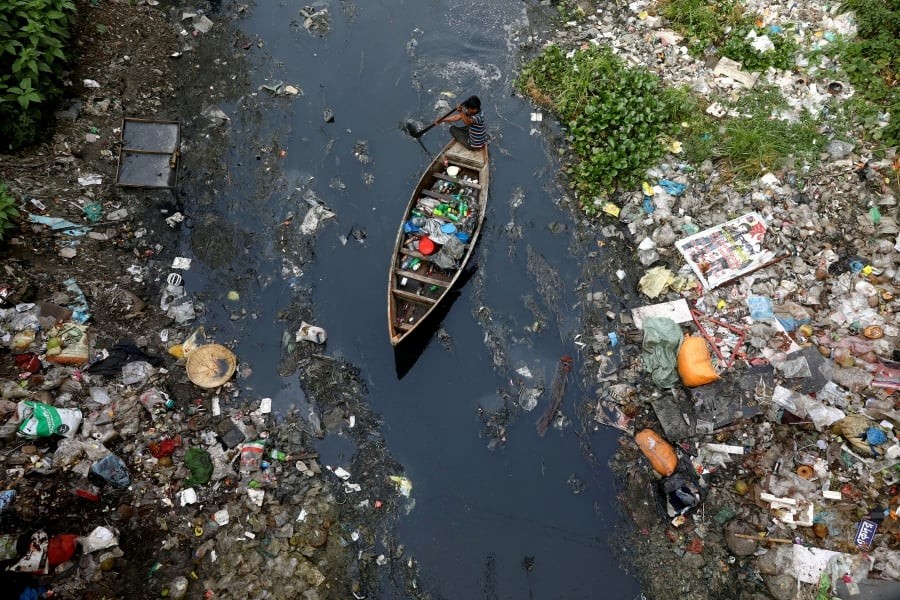Some 18 transboundary rivers in Bangladesh carry approximately 15,345 tonnes of single-use plastic waste, including from India and Myanmar, says a new study on Sunday.
The study found that nearly half a million tons of single-use plastic waste enter our Bay of Bengal every year.
The study findings were disclosed at a dialogue held in Dhaka by the Environment and Social Development Organization-ESDO in collaboration with the Plastic Solutions Fund and the Global Alliance of Incineration Alternatives (GAIA).
Baseline surveys were conducted through questionnaires and carried out from December 2020 to July 2022 on a total of 7020 people from different societies like educated people, students, boatmen, fishermen, shopkeepers etc., where around 11,700 samples of single-use plastic waste were collected from transboundary streams and surrounding bank areas.
The transboundary rivers of Bangladesh assessed for this study are upstream Mahananda, Dahuk, Karatoya, Tista, Dharla, Dudhkumar, Brahmaputra, Surma, Kushiyara; in the case of midstream Ganges, and in case of downstream Ichamati-Kalindi, and Naf.
The event was chaired by Syed Marghub Murshed, respected Chairperson of ESDO and former secretary of the government of Bangladesh.
Dr Manjur Ahmed Chowdhury, the National River Conservation Commission Chairman, graced the event as chief guest.
He stated that “Bangladesh is called a riverine country. But this river is now under threat. This terrible single-use plastic, which never decomposes, is responsible for the destruction of our rivers. We hope our government will take appropriate action in this regard.”
Jacob Kean-Hammerson, Project Officer (Climate and Ocean Operations), Environmental Investigation Agency (EIA), UK, joined the event virtually.
According to the statement of the Coordinator of GAIA India, Shibu K Nair, “The upcoming Global Plastics Agreement will help every country to get rid of this single-use plastic pollution. we all should now focus on this so that we can get rid of this single-use plastic for good.”


